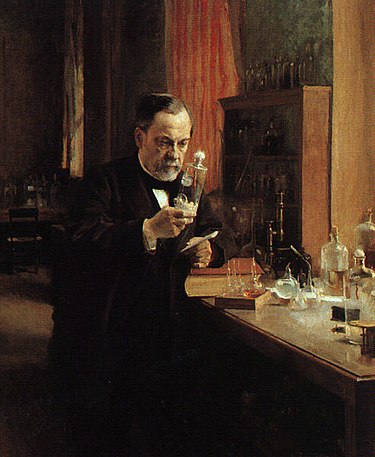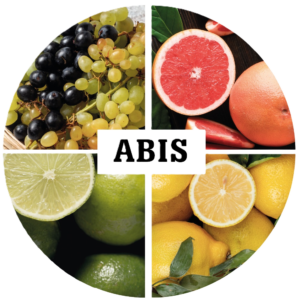Louis Pasteur and Beer

But Louis Pasteur was all about vaccines, pasteurization and more? Well, not only that! We tell you...
For the record
Born in Dole in 1822, Louis Pasteur was a French chemist and microbiologist renowned for his research into vaccination, pasteurization and fermentation.
Pasteur discovered that certain organisms, notably yeast, are able to live in the absence of air.
He demonstrated that micro-organisms do not appear and develop by spontaneous generation, but thanks to spores present in the air and on food.
Pasteur created the process later known as "pasteurization", which extended the shelf life of many products.
In addition to fermentation, Pasteur was responsible for many other advances and discoveries, including the rabies vaccine and a vaccine against hen cholera, anthrax and hog mullet.
Did you know?
The first "patent" filed by Louis Pasteur concerned alcoholic fermentation (February 3, 1857).
Between 1861 and 1873, Louis Pasteur filed a series of other patents, notably concerning acetic fermentation, wine preservation processes and beer production (this last patent was filed on June 28, 1871).
And that's what we want to talk to you about 😉
When military defeat sparks scientific interest
Let's start with a little history. The year is 1870, in the midst of the conflict between the Prussians (and their ally Germany) and France. France's defeat and the fall of Napoleon III put an end to the 2nd Republic, and ushered in the 3rd Republic. It was in this tense climate that Pasteur's research into beer began!
Dismayed by the defeat and capture of Napoleon III, and driven by his patriotism, Louis Pasteur set out to make beers as good as those from the Germans, who at the time were superior to us in the field of malt beverages.
For it was at this time that Lager beers first appeared in Bavaria! These were bottom-fermented beers, a technique skilfully mastered by the Germans. The advantage of bottom fermentation was that the beer kept better.
Control, pasteurize, revolutionize!
At this time, French brewers were faced with the problem ofacidification of their beers during the summer, with unstable beer that had to be drunk very quickly after production. Pasteur - already interested in micro-organisms and fermentation - was able to demonstrate the contamination of beer sourdough by bacteria from the ambient air.
On June 28, 1871, Louis Pasteur patented a process for making beer. Having observed that fermentation was due to microorganisms, he proposed a method for destroying them: heat the liquid in question to a minimum temperature of 55°C for a few minutes, then cool it immediately. This method, applied to all spoilable liquids, is known the world over as "pasteurization". By altering the fermentation process, which was a problem in obtaining a stable, sufficiently carbonated beer, the process is improved, and is now known as " La bière de la Revanche" (Revenge beer).
In Denmark, Carlsberg Breweries were the first breweries to pasteurize beer. Jacob Christian Jacobsen was the founder of the Carlsberg Danish brewery (1846) and the Carlsberg research laboratory (1875), which soon produced significant scientific results for the brewing world. "J.C. Jacobsen had unlimited respect for [Louis] Pasteur," explains Birgitte Skadhauge, Vice President of the Carlsberg Research Laboratory | Carlsbergfondet.
Finally, in 1877, he published " Etudes sur la bière "which contributed to the expansion of the beer market in France.
Pasteurizing, yes but...
As Une Petite Mousse explains:
"Nowadays, a lot has changed and the way we make beer has evolved. We're now able to manage the bacteria and yeast we put in our beers, and pasteurization is no longer vital at all. Atleast for craft brewers!
After all, pasteurization is still very much in vogue among the major groups! The advantage is a highly controlled, reproducible taste, a longer shelf life and easier transport. That's why a Heineken will always taste the same wherever you are on the planet. And that's why our American friends, in particular, only accept pasteurized beers for import onto their soil.
But these advantages are also the disadvantages of pasteurization. Pasteurized beer is frozen, with no possibility of evolution. Its taste and smell are blocked, as the yeasts and vitamins are almost all destroyed... So, for the big groups, yes, but for the beer adventurers that are the craft brewers, NO!"
Sources:
- https://brewsociety.fr/revolution-pasteur/
- https://unepetitemousse.fr/blog/biere-pasteurisee/
- https://www.toutsurlalevure.fr/levure-et-fermentation/louis-pasteur-le-pere-de-la-fermentation/
- https://www.pasteur.fr/fr/journal-recherche/actualites/pasteur-carlsberg-longue-histoire-science-amitie













